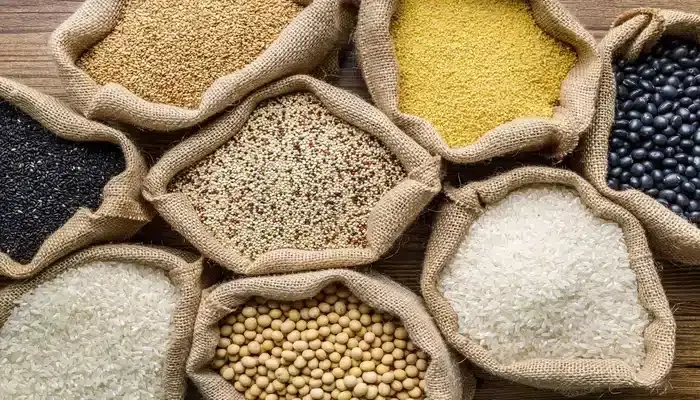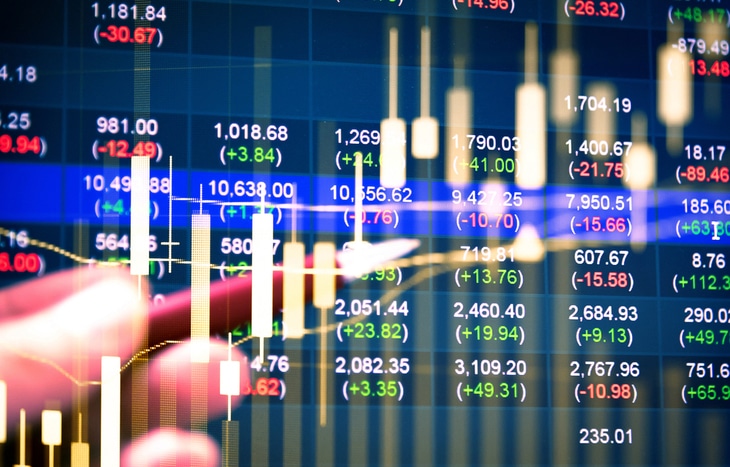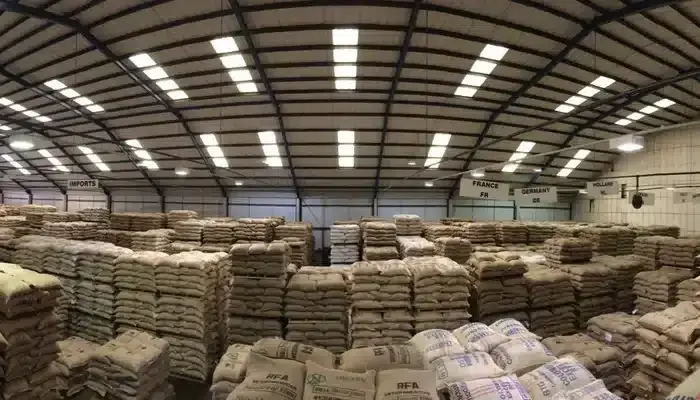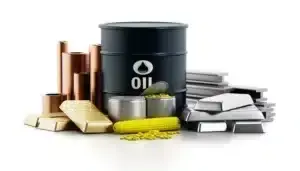Should You Invest in Commodities Right Now?
If you are looking to invest as an expat or high-net-worth individual, which is what I specialize in, you can email me (advice@adamfayed.com) or WhatsApp (+44-7393-450-837).
Table of Contents
Introduction
Should You Invest in Commodities Right Now? We’ll try to answer this question in the article by showing you the pros and cons of investing in commodities. But first, what exactly are these so-called commodities?
Regardless of where they come from, commodities are products with a generally consistent quality and utility.
As a result of their interchangeability, commodities can be defined broadly to include a wide range of goods for which consumers don’t give any thought to the brand.
Investors frequently refer to a small number of essential items that are in high demand worldwide in their more focused discussions. Investors frequently concentrate on commodities that are used as raw materials to produce finished items.
Commodities are divided into two groups — hard and soft — by investors. Metals like gold, copper, and aluminum as well as energy products like crude oil, natural gas, and unleaded gasoline are examples of hard commodities that need to be mined or drilled for. Soft commodities are produced agricultural products like rice, corn, soybeans, and livestock.

Should You Invest in Commodities Right Now: How Volatile Are They?
Commodity prices mostly fluctuate due to supply and demand factors. The price of a fruit in season typically decreases after a large harvest since there’s a lot of supply available in the market, but prices could surge during droughts or after flooding due to concerns that future supply would be insufficient.
Similar to this, when it’s cold outside, there is typically a higher demand for natural gas for heating, which drives up costs, while a warm spell during the winter can drive them down.
Commodity volatility is typically higher than that of stocks, bonds, and other types of assets because supply and demand factors are subject to frequent change.
Some commodities exhibit greater stability than others. A good example is gold, which is often used as a reserve asset by central banks to fend off volatility. However, other commodities frequently fluctuate between stable and volatile states based on market dynamics. Gold, on occasion, can experience volatility too.
Should You Invest in Commodities Right Now: The How-to
Direct investment
A commodity must be bought and stored if you want to invest directly in it. The logistics of delivery and finding a buyer are both necessary when selling a commodity. Barrels of crude oil are more challenging to handle than metal commodities.
Exchange-traded Funds (ETFs)
The majority of lone investors select ETFs with exposure to commodities. Some commodity ETFs purchase the actual commodities before issuing shares to investors that correspond to a specific quantity of a given good.
Some commodity ETFs make use of futures agreements, but storage expenses for a specific commodity are factored into futures prices. In light of this, even if the spot price of a commodity increases, a commodity that is expensive to store may not reflect profits.
Commodities-related stocks
The corporations that manufacture commodities have shares available to investors as well, such as businesses that extract crude oil and natural gas, or those that grow crops and sell them to food makers. Those who invest in commodity stocks are aware that a company’s worth does not always correspond to the cost of the commodity it produces.
What matters most is how much of the commodity the business manufactures over time. If a corporation does not provide what the investors had expected, the price of a stock may fall sharply.

Futures
Futures contracts for commodities provide immediate exposure to changes in commodity prices. Some ETFs also provide exposure to commodities. You can trade stocks in businesses that make a particular commodity if you’d prefer to make an investment on the stock market.
With commodity futures contracts, the investor is obligated to buy or sell a specific quantity of a commodity at a predetermined price in the future. Investors need a brokerage account or a stockbroker who offers futures trading in order to trade futures.
A buyer’s contract gains value when the price of a commodity climbs, while the seller’s contract loses value. On the other hand, when a commodity’s price declines, the seller of the futures contract benefits at the buyer’s expense.
The main corporations in each commodity business are the target market for futures contracts. One gold contract would call for the purchase of 100 troy ounces of gold, which could be an undertaking worth more than $150,000. This level of exposure is higher than what a typical investor desires in his or her portfolios.
Should You Invest in Commodities Right Now: The Hard Part
Less people can understand commodities
The intricacies of the stock market are generally understood by investors, but commodity investing can be biting of more than you can chew.
A seller agrees to provide a commodity to a buyer at a specified time and price in the future in exchange for a premium. These derivatives referred to as futures contracts are the most common way that commodities are traded. Therefore, the profit that investors will gain from a commodities futures contract is not directly related to the current price of the product.
No interest or dividends are paid to you
In contrast to the majority of bonds and many equities, commodities don’t naturally produce interest or dividends. A stock signifies ownership in a company that normally increases in value over time, but the value of commodities is solely dependent on worldwide supply, commercial demand, and speculation.
Settling fees for storage, insurance, and other expenses
Commodities are tangible items that need to be moved, stored, maintained, and insured against potential loss. For instance, harvests must be insured against loss from unfavorable weather or wildfires, and silver bullion must be stored in a vault and covered by insurance in case it is stolen. The total cost of carry, also referred to as the carrying charge, is what affects an investor’s long-term overall returns.

Commodities don’t make a great hedge long term
Due to their poor correlation with other asset classes, commodities are frequently used as a hedge by investors to lower portfolio risk. The issue is that several commodity indexes have a concentrated weighting in a small number of commodities, including crude oil. They frequently outperform during crises on a speculative basis, but these crises are usually brief.
Additionally, there has recently been an inverse relationship between gold and Treasury rates and a positive relationship between stocks and crude oil.
Selling for a fair price could prove challenging
When traded farther out on the market, many commodities suffer from a lack of liquidity. In order to address these problems, futures exchanges bootstrap contract values after the market closes, resulting in significant price fluctuations in portfolio valuations that are marked to market.
Manipulated commodity markets
The Organization of Petroleum Exporting Countries (OPEC) and its influence on crude oil prices are known to the majority of investors, but many other lesser-recognized cartels control the market for commodities like potash and diamonds. This suggests that a small number of traders or investors who want to keep prices at certain levels may have a greater impact on these marketplaces than supply and demand alone.
Should You Invest in Commodities Right Now: The Good Part
The addition of uncorrelated risky assets to a portfolio causes portfolio diversification. Commodities can offer some diversification because, on average, they have low or negative correlations with equities and other asset groups.
For the majority of investors, commodities may not be a good investment, but there are some situations where they are. When an investor is worried about a catastrophe, precious metals in particular, like gold, may be a good hedge over a short period of time. Gold serves as an effective short-term hedge against a decrease because its prices tend to increase when equity prices decline substantially, say by 15% and up.
Investors may occasionally spot opportunities where commodity prices are likely to move in predictable patterns. Crude oil markets before an OPEC meeting, where a rise or fall in production is generally anticipated, would be an excellent illustration. Even if prices may have previously risen in expectation, these occurrences typically cause volatility that might be advantageous for speculative investors or short-term traders.
Last but not the least, commodities might be beneficial hedges for other investments. A portfolio that is heavily focused in crude oil firms is a good example. The investor can utilize futures contracts to eliminate commodity-related risks while still profiting from company-related risks and rewards if they want to protect themselves against a drop in crude oil prices.
Should You Invest in Commodities Right Now: Conclusion
Many investors seek to preserve their purchasing power during periods of inflation by investing in asset types including real-return bonds, commodities, and perhaps international bonds and real estate. Investors try to offer a variety of levels of upside potential and downside protection by including these varied asset types into their portfolios.
It is crucial that you set a limit on the highest correlation of returns you’ll accept between your asset classes and make a judicious choice of those asset classes.
If you really want to invest in commodities, experts advise allotting between 5% and 10% of a portfolio to a combination of commodities. If you have a lower risk tolerance, an even smaller allocation is advisable.
Pained by financial indecision? Want to invest with Adam?

Adam is an internationally recognised author on financial matters, with over 760.2 million answer views on Quora.com, a widely sold book on Amazon, and a contributor on Forbes.



